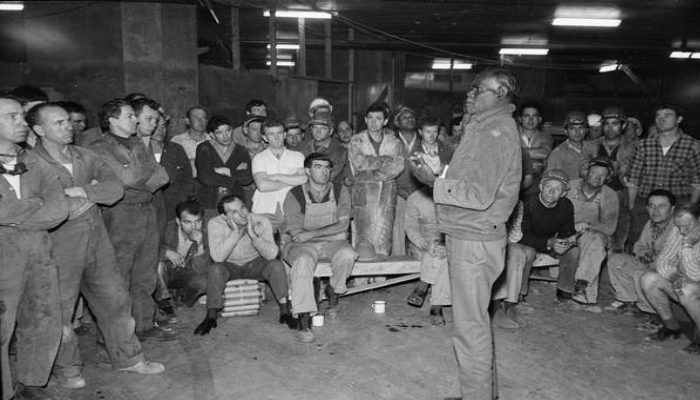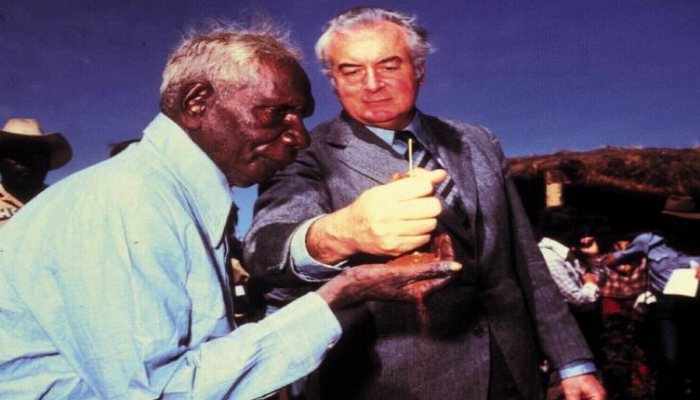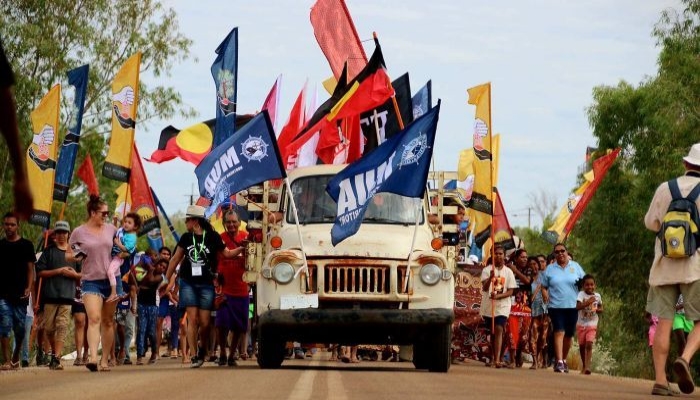
50 years since the Wave Hill walk-off
August 23rd marked the 50th anniversary of a major event in the history of the aboriginal land rights movement – the walk off by Gurindji stockmen and their families from the Wave Hill Station in the Northern Territory.
What is perhaps less well known is the role that the Australian union movement played in supporting what was initially a strike over wages and conditions at the station – the “little thing” out of which a much larger thing was to grow.
At the time, Aboriginal workers were not entitled to equal pay with European workers.
In 1965 an attempt had been made to change this situation, but it was successfully opposed by the big pastoralists like Lord Vestey who owned Wave Hill.
Supported by indigenous union activist, Dexter Daniels and Darwin waterside worker, Brian Manning, Gurindji elder Vincent Lingiari led his community off the station to begin what became a nine year campaign not only for fair treatment as workers but for recognition of aboriginal rights over their traditional lands.
That campaign reached a major milestone when in August 1975, Labor Prime Minister Gough Whitlam handed over title to what was a part of Gurindji land, symbolically pouring soil into Vincent Lingiari’s hands.
Manning, in particular, played a key role in providing immediate support to the strikers, making some fifteen 1,600 ks round trips from Darwin to Wave Hill in his truck to keep them supplied.
Daniels and Gurindji man, Lupna Giari (also known as Captain Major), toured the east coast capital cities, speaking to unionists and raising money for a strike fund. The trip was subsidised by the Building Workers Industrial Union (now the CFMEU) and Actors Equity (now MEAA). The Meat Workers’ Union placed a black ban on Vestey’s meat.
In August, the Executive of the Australian Council of Trade Unions (ACTU) met In Darwin with representatives of the aboriginal community to commemorate the Wave Hill walk-off. In his address, ACTU secretary Dave Oliver said the Australian union movement was proud of the solidarity it had offered during this important struggle and pledged ongoing support for the goals of Respect, Rights and Recognition for indigenous Australians.












